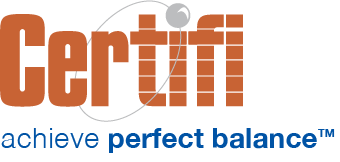Are we in a recession? Most economists seem to think no because unemployment remains low, and the National Bureau of Economic Research hasn’t declared the US to be in a recession. Yet, consecutive quarters of decline in the gross domestic product (GDP) usually signal a recession, which occurred in Q1 and Q2 of 2022, though GDP was up in Q3.
But as the Federal Reserve continues to combat inflation by raising interest rates, most economists agree that if we’re not in a recession today, we likely will see a recessionary environment in 2023.
Health insurers are typically relatively insulated from economic downturns compared to other industries, though a recession can still impact earnings. According to Moody’s, in the 2008 recession, insurer earnings declined by 27% compared to 77% for the S&P 500. Additionally, many large insurers have diversified since 2008 and rely less on commercial health insurance for revenue than in the past recession.
But those impacts will still be felt. Recessions typically lead to job loss, which lowers an insurer’s enrollment numbers. It also may spur employees – afraid of potential job and insurance losses – to increase healthcare utilization. Both can impact a health insurer.
How can health insurance companies outperform their peers during a recession? Here are four tips:
Double Down On Operational Improvements
When times are good, it’s easy to let operational inefficiencies slide. But in times of recessionary stress, those inefficiencies become glaring weaknesses.
If you haven’t cut staff, your organization may have some slack. Utilize that slack to streamline processes. We recently wrote a good primer discussing six health insurance process improvement tips.
Health Insurance Companies During a Recession Should Invest in Technology
Researchers examined job listings to determine what impact the 2008 recession had on the skills employers sought. Because there was a large pool of job seekers, employers could be picky, often requiring higher-level skills, including computer-related skills. But they also found that companies in areas most impacted by the recession increased their investment in technology, which drove more IT skills in their job postings.
Why invest in technology during a recession? Because it’s likely that you may have more operating budget to invest in technology initiatives without impacting sales. In turn, those technology investments can build efficiencies that make it easier to survive economic downturns.
The right technology can simplify steering your organization through a storm. You’ll be better able to see your organization’s performance and make sound, data-based decisions.
So consider investing in new core admin solutions, analytics software or infrastructure, automated Medicaid payment reconciliation software, or health insurance premium billing software that helps you streamline processes or better understand business performance.
Get Creative to Avoid Layoffs
After the 2000 recession, Honeywell laid off nearly 20% of its employees. Its performance subsequently struggled after the recession, likely because it had lost a significant amount of institutional knowledge. Learning from that mistake, in the 2008 economic downturn, Honeywell chose to furlough employees for one to five weeks. Instead of focusing on cutting deep, Honeywell focused on talent retention so it could hit the ground running during the recovery that inevitably follows a recession. As a result, Honeywell outperformed its post-recession results from 2000 and, more importantly, its competitors post-recession.
The takeaway: Layoffs may be necessary, but deep cuts can have significant consequences. Not only do you lose institutional knowledge that improves business performance, but acquiring talent during the recovery can be costly. Deep staff cuts can also impact morale and the performance of those that survived.
Instead, look for short-term solutions like furloughs, hour reductions, or performance pay to maintain as many employees as possible. Doing so will make it easier to grow during the recession and the recovery.
Health Insurance Companies During a Recession Should Look for Market Opportunities
Large health insurers like UnitedHealth Group, Elevance Health, Humana, and others have diversified their businesses since the last recession. That makes them more resilient when the next downturn arrives.
A recession may shake up the market. A number of insurers have announced they’re leaving ACA markets in 2023 as they focus more on profitability than revenue growth. There may be an opportunity to capitalize on those departures. Or, an acquisition may help you expand your reach or diversify your product offering.
To improve resiliency, health insurance companies during a recession should prioritize market analysis in search of growth and diversification opportunities.
Certifi’s health insurance premium billing and payment solutions help healthcare payers improve member satisfaction while reducing administrative costs.



